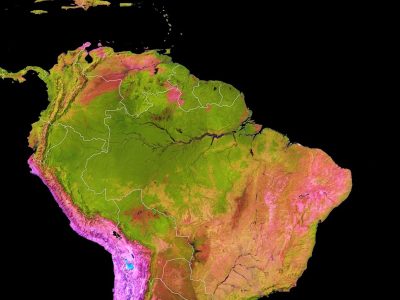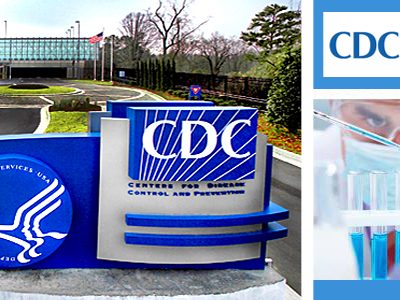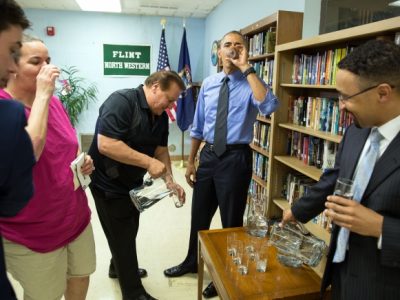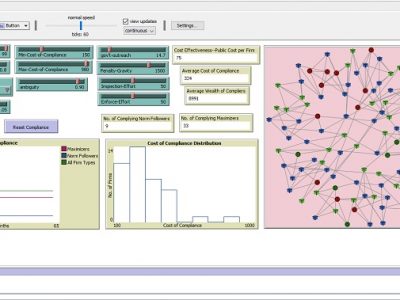Emmett Institute COVID-19
Climate’s Future in the Face of COVID
Even as emissions decrease, climate activists shouldn’t get comfortable
As many have pointed out, air and water pollution have plummeted because of COVID-19. My colleague Ben Harris wrote about the many positive environmental impacts that global-scale quarantine has caused – and they’re truly inspiring. Some have pointed to this massive pollution reduction to illustrate that “we are the virus”. Perhaps the pollution reduction is …
Continue reading “Climate’s Future in the Face of COVID”
CONTINUE READINGDebate Amid Coronavirus: Are Single-Use Plastic Bags Safer?
How Plastics Companies and Environmental Groups Can Help Us Find an Answer
Since the outbreak of COVID-19, concerns have grown over the safety of grocery bags. Many U.S. states—among them New York, California, Maine, Massachusetts, and Oregon—have suspended or delayed their single-use plastic bag bans in the past two months. Some places like Massachusetts, New Hampshire, and San Francisco have gone even further to temporarily ban reusable …
Continue reading “Debate Amid Coronavirus: Are Single-Use Plastic Bags Safer?”
CONTINUE READINGHow to Jump Start the Economy? Regulate
Smart Regulation Can Overcome The “Paradox of Thrift”
Once we begin to dig ourselves out from the COVID-19 pandemic, we will need to think seriously about how the rebuild the economy. And that should scare environmentalists. Expect a whole series of pushes from the usual suspects about we “can’t afford” environmental protection when the nation is in depression. That is precisely wrong. Suppose …
Continue reading “How to Jump Start the Economy? Regulate”
CONTINUE READINGCOVID and Climate Change
Immediate emissions reductions, and durable ones
Many commenters on the pandemic response have noted the supposed silver lining that as travel, commerce, other economic activity have dropped, so too have the associated burdens on the environment. The air is clean, wild animals are roaming in cities – and there have been substantial, not huge, reductions in the emissions of CO2 and …
Continue reading “COVID and Climate Change”
CONTINUE READINGCoronavirus, Climate Change, and Tropical Forests
Why the fight against deforestation is more urgent than ever
Long before the wet markets of Wuhan became the focus of worldwide attention, scientists have pointed to tropical deforestation and habitat destruction as key factors facilitating the spread of zoonotic viruses such as Ebola and the Coronaviruses as well as other infectious and vector-borne diseases. The obvious lesson from this research is that protecting intact …
Continue reading “Coronavirus, Climate Change, and Tropical Forests”
CONTINUE READINGThe Netherlands Will Likely Meet Ambitious Climate Targets
While COVID-19 will enable NL to meet a court mandate, the government wants to go further
Today is the national day of the Netherlands: Koningsdag, or King’s Day. This holiday is typically celebrated with enormous street parties and outdoor flea markets. Of course, the 2020 edition is different, with the government asking residents to stay indoors in a “Woningsdag,” or Home Day, to limit the spread of the coronavirus. In the …
Continue reading “The Netherlands Will Likely Meet Ambitious Climate Targets”
CONTINUE READINGIn Support of Public Health Federalism
Reactionary State Responses to COVID-19 (and Other Threats to Public Health) Don’t Mean Federalism Is For Suckers
For decades, “states’ rights” has been a rallying cry of the right wing. Most Americans are familiar with the dynamics that required the federalization of civil rights law, both in the 1860s and again in the 1960s, the protection of much of our nation’s federal lands, and the national crises that necessitated the federal government …
Continue reading “In Support of Public Health Federalism”
CONTINUE READINGFlint Five Years On
What has happened with Flint’s drinking water?
The history of environmental policy can well be told by place names. Love Canal – hazardous waste. Los Angeles – air quality. The Cuyahoga River – water quality. And, most recently, Flint – drinking water. The tragedy in Flint, Michigan, entered the 24/7 national news cycle five years ago, led President Obama to visit the …
Continue reading “Flint Five Years On”
CONTINUE READINGWhat Can We Learn from Modeling a Pandemic?
Individual-based modeling offers untapped opportunities for policymakers and researchers
With the emergence of the corona virus, modeling – the science of representing processes and systems for purpose of analysis—has been at the center of debate how to respond to this public health crisis. Experts and non-experts alike follow the latest modeling predictions, and federal and state public health policies are grounded, at least in …
Continue reading “What Can We Learn from Modeling a Pandemic?”
CONTINUE READINGWhat Do Tomorrow’s Leaders Think About This Mess?
Listening to student voices on the pandemic, climate change, and the future
One thing I’ve always loved about teaching is the opportunity to see important issues through my students’ eyes. So for my last Climate Law and Policy class at UCLA Law this week, I asked my students to tell me what they are thinking about the future of climate policy in light of today’s global circumstances, …
Continue reading “What Do Tomorrow’s Leaders Think About This Mess?”
CONTINUE READING










